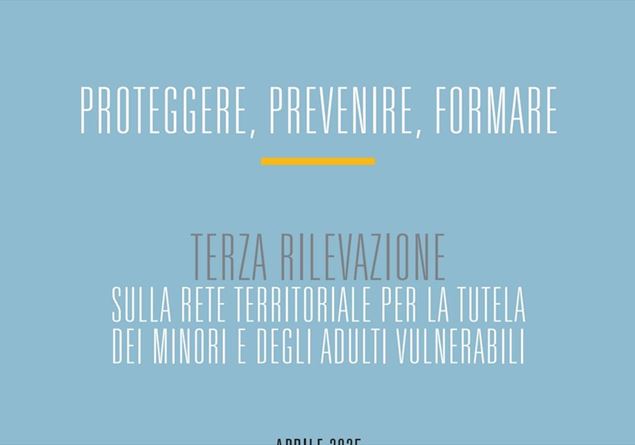The reports of alleged abuses increase, a sign of greater sensitivity to the theme and more adequate tools to encourage listening and the emergence of the phenomenon. In 2023-2024, the third report of the CEI on the activities of regional, diocesan/interdiocesan services and listening centers for the protection of minors and vulnerable adults, 69 were 69 alleged authors for a total of 115 victims, and the abuses would have been consumed especially in the parish. The alleged abusers are mainly cleric (44) and males (65) while the alleged victims are mainly males (64 against 51 females). The most affected age group among the alleged victims is that of 10-14 years (31.3%). With reference to the lay people, the detail relating to the pastoral service carried out indicates that the alleged crime authors, at the time of reporting, carried out the following roles: catechist/educator (4), volunteer (3), collaborator (2), religion teacher (1), seminarist (1), sacristan (1).
In 37 cases the abuses would have occurred in the period in question while 32 refer to the past. Most of the reports concern inappropriate behaviors and touching, explain the research. The alleged spiritual and consciousness abuses, however, pass from 4 to 17. “The third report of the CEI on the abuses by religious presents the size of the phenomenon”, commented on the president of Telefono Azzurro Ernesto Caffo. «This is a positive fact and a step forward. I believe that there is a need for a relationship and a closer dialogue between the Church, the educational communities and the institutions to be able to provide universally shared tools and that they are concrete help for the victims, which are too often forgotten “.
The greatest coordination with civil structures is also what they hope for CEI. In fact, only a region has activated collaborations with non -ecclesial entities in 2024. Instead, communication channels improve. There are 65 dioceses that have a specific email address for the reception of reports and 43 those that have activated a dedicated telephone number.
38 percent of the dioceses also implemented online modules to contact the listening center or the referent. “The enhancement of the access channels is a significant indicator of transparency and proximity”, reads the report, “but the visibility of this information on diocesan sites still remains uncomfortable. The document therefore recommends “making contacts and procedures easily accessible” to increase transparency and trust in protection services.
The contacts of the Regional Minor Protection Service also suggest initiatives to improve the effectiveness of the service: ‘”The proposals include training meetings and support in the management of complex cases. Training meetings are the most frequent proposal, with 13 requests in the two-year period 2023-2024. Support in the management of complex cases was requested by 8 regions. Need for common protocols for more uniform management of reports ».
Chiara Griffini, president of the CEI National Service for the protection of minors and vulnerable adults, explains that the survey “wants to be periodic monitoring on the application of the guidelines that have entered in force in June 2019 for the purpose of verifying and transparently documenting its effectiveness and capillarity in promoting safe ecclesial environments in churches in Italy”.
The tool, which from now on will be a two -year, “verifies effectiveness and capillarity of the structures present throughout Italy and highlights significant progress in the creation of safe ecclesial environments, in the formation of operators and in the reception and listening to the victims”, said Cardinal Matteo Zuppi during the CEI Permanent Council. “This does not mean hiding or underestimated the complexities that have emerged: the difficulties and suffering are there and question us, as shepherds and as an ecclesial community. The penalty without justice and opacity, the attention to the data arrived from the diocese and processed by the experts of the Catholic University of the Sacred Heart of Piacenza, ask for a growing commitment and spur us to continue on this path of responsibility and transparency to work on critical issues and implement good practices “.


